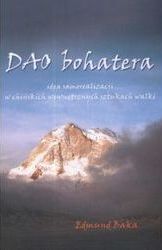
Edmund Baka, The Dao of a Hero - the Idea of Self-Realization in Chinese Internal Martial Arts [Dao Bohatera – idea samorealizacji w chińskich wewnętrznych sztukach walki], Zakład Wydawniczy Nomos, Kraków 2008.
The Introduction presents the basic idea of the book, that is the concept of Wang Xuanjie, which describes the most important goals of the Chinese martial arts practice as the method of self-realisation. The introduction also presents methodological principles of the work.
The Chapter One contains a short description of origins and development of neijiaquan from the 5th century BC until the present. It shows the continuity of basic principles created by the wandering knights youxia, which are still the essence of the contemporary wushu theory.
Chapter Two contains a description of the theory and practice of wushu. It begins by showing the cultural background, philosophical and religious inspirations. Next it presents the general characteristics of wushu, its categories of division, elements of a devotee's life and training from the point of view of self-realisation. The unbreakable unity of exercises, that shape the devotee's ethics and personality, and the development of martial skills is underlined in this chapter.
Chapter Three shows the possibility of verifying J.Campbell's myth of the hero concept, on the grounds of Chinese martial arts. It contains a discussion on the wuxia literature and the cinematography based on it, which creates the model for the moral attitude and goals of devotees.
The conclusion contains the recapitulation and an attempt of final valuation of the material.
Key words: self-realisation, daoism, wushu, neijia, wuxia

